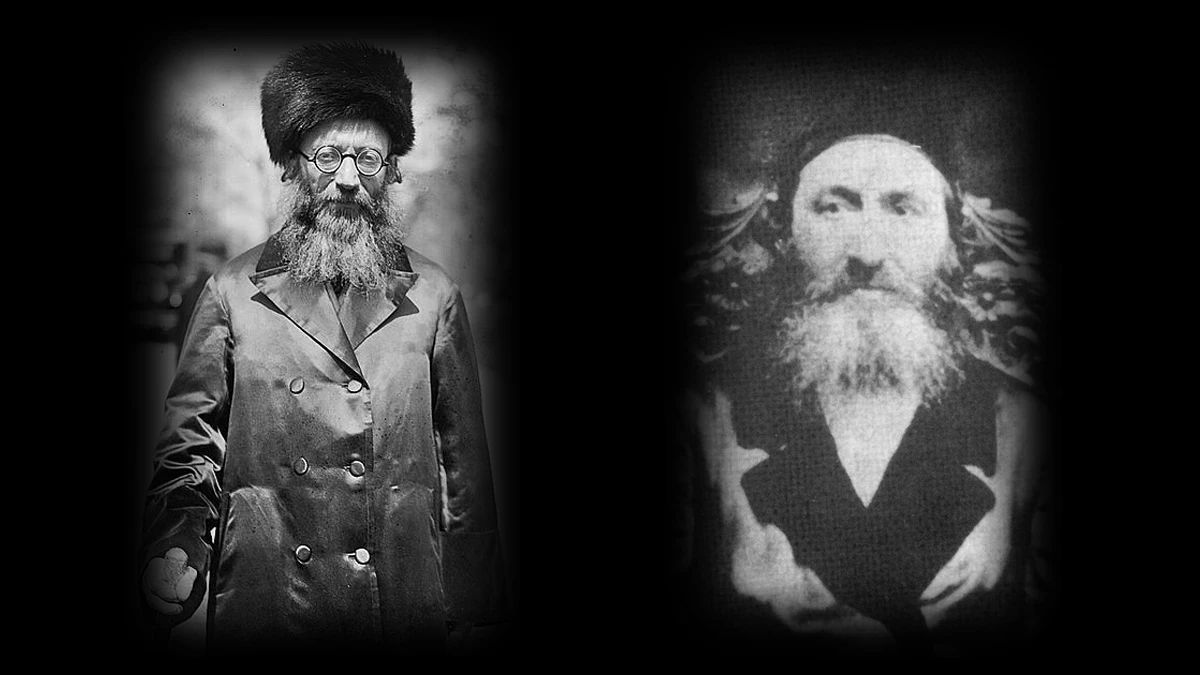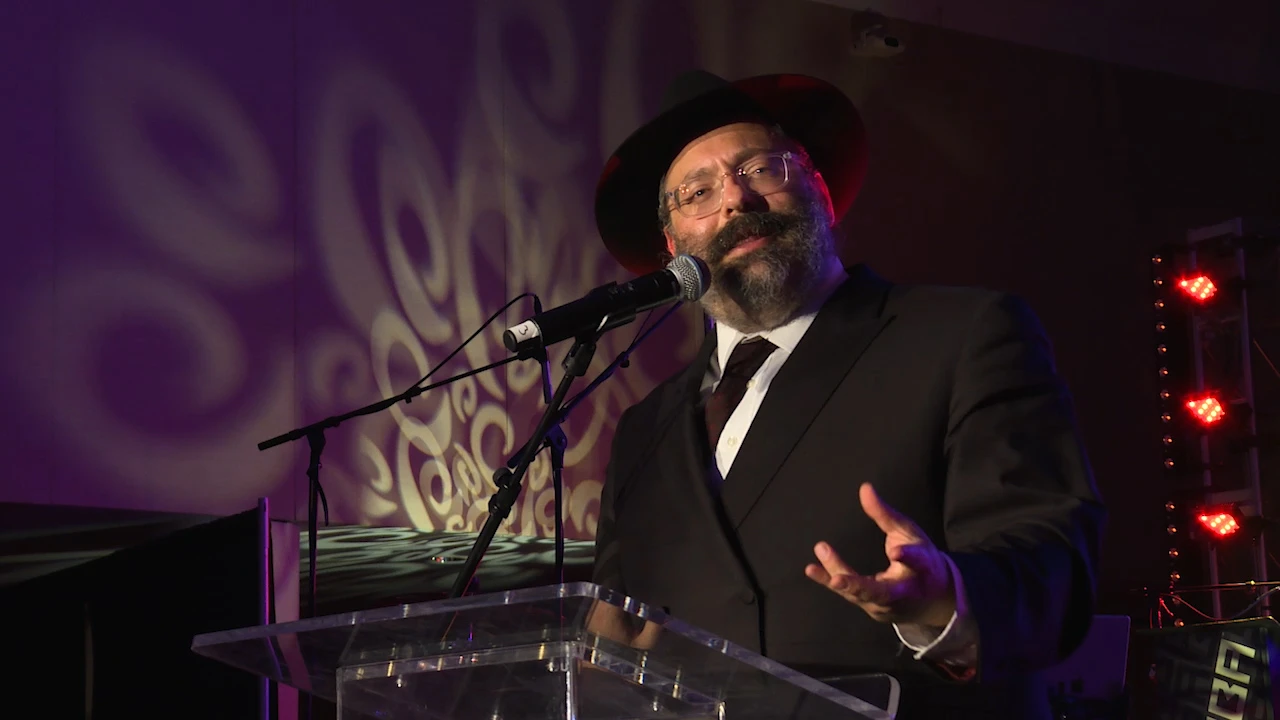Me or We? The Individual vs. the Collective in Halacha & Kabbalah
How to Like the People You Love: The Mistake of Rabbi Akiva’s Students
- April 20, 2015
- |
- 1 Iyyar 5775
Rabbi YY Jacobson
5363 views- 6Comment
- Call-in
Listen to the class on the phone
Call +1 (845) 201-1933
When prompted, dial the ID number below.
2393 MP3 MP4 Source Sheets - Copy Embed
Dedicated by David Pisarevsky in the loving memory of Yaakov, 5, Sarah, 6, Moshe, 8,Yehoshua, 10, Rivka, 11, Dovid, 12 and Eliana, 16 – Sassoon, and for the complete and speedy recovery of their mother Gilah bas Frances and her daughter Tziporah bas Gilah
Class Summary:
Rabbi Akiva taught his students to love. But they could still not learn to respect their colleagues. Why?
How does Jewish law and Jewish mysticism view the reality of the collective vs. the individual? An analysis by the Rogatchover Gaon on the view of Rabbi Akiva in various Talmudic laws reveals a pattern of thought: The collective is not only a sum of many individuals joined together; but there is a transcendent reality in which all of the individual details melt away in a single integrated oneness.
There are two charged terms in the Hebrew language: Love and respect. The first comes from a sense of oneness; the latter is born from a sense of distinctiveness. Can it be that the students of Rabbi Akiva knew how to love but not how to respect?
There are people you like but you don't love; there are people you love but you may not like. There are people that you love and you like, and there are people, well, that you don't love and you don't like either. You love your parents. You love your brothers. You love your sisters. But you don't necessarily like them… Sometimes you love your husband, but you have a hard time liking him. What is the difference between "liking" and "loving"? What is the difference between anti-Semites who hate Jews and Jews who dislike Jews? Why do we count both "day" and the "week" in the counting of the Omer? Why are there so many couples who “fall in love,” but after some time, they find themselves so far apart? What happened to the love? Most of us love our children. But do we respect them?
Tags
Categories
Rabbi YY Jacobson
- April 20, 2015
- |
- 1 Iyyar 5775
- |
- 5363 views
Dedicated by David Pisarevsky in the loving memory of Yaakov, 5, Sarah, 6, Moshe, 8,Yehoshua, 10, Rivka, 11, Dovid, 12 and Eliana, 16 – Sassoon, and for the complete and speedy recovery of their mother Gilah bas Frances and her daughter Tziporah bas Gilah
Related Classes
Please help us continue our work
Sign up to receive latest content by Rabbi YY
Join our WhatsApp Community
Join our WhatsApp Community















Please leave your comment below!
Geoffrey E. Harris -3 years ago
This is hard.
There are also some children who can honor their parents but who do not love them. To hold together as a family, not only are health and wealth needed, but respect, open communications in the form of dialogue, liking, and loving are need. Positity is needed. Why is it so hard for people to be good to one another, to be kind and loving. The human animal is too individualistic, too mean, greedy, and selfish.
Reply to this comment.Flag this comment.
Zvi -5 years ago
Dear Rebbe,
I just finished listening to your shiur given April 20,2015 on the topic of the importance of the individual vs the collective. Again fascinating. And as always. Thank you.
May I please ask a few questions. If you have the time to answer I would greatly appreciate it. And if not Baruch HaShem. I am grateful for the ability just to ask.
1. By kabalas hatorah on har sinai. Klal Yisroel was like one man with one heart as categorized by rashi. Why was there no need for the individual in this setting?
2. True. The students of rabbi Akiva didn’t respect the individuality of each other. But is that a reason why 24,000 people should die? They did love each other. Shouldn’t that quality be enough to redeem them from death?
3. Are they called 12,000 pairs because they didn’t recognize each as an individual?
4. What can/should be the methods of interacting with a person whom for whatever reason appears to not be capable of respecting others individuality? Especially this person becomes insulted when even trying to point out that this is occurring?
Thank you again for your continued education and chizuk. For me as an individual as well as a part of klal Yisroel.
Zvi
Reply to this comment.Flag this comment.
Rabbi YY -5 years ago
In response to your questions:
Reply to this comment.Flag this comment.
danny -8 years ago
אחרי השיעור הזה חזק ברוך אפשר גם להבין את השיעור שהרב הביא על כל המחלוקת של רבי יהודה ורבי שמעון שהוא רבי שמעון היה מתלמדי רבי עקיבא והוא כמו שפירש הרב שבכל השס היה מחפש את עומק מחשבתו של כל אחד וזה להביט בפרט במעלה הכי גבוהה
Reply to this comment.Flag this comment.
Rabbi YY Jacobson -9 years ago
נראה לומר בדרך אפשר, שעל פי זה מתורצת לשון הגמרא שי"ב אלף זוגים היו לו לרבי עקיבא. והקשינו בתחלת השיעור מדוע לא נאמר בבירור כ"ד אלף תלמידים? ואולי שבזה מרומז כל נקודת הענין שנתבארה בהשיעור. טעות תלמידי רבי עקיבא נבעה מכך שהיו באמת "זוגים", היינו שהרגישו אהבה נוראה ונפלאה אחד לשני, כמו "זוג", על דרך ומעין "פלג גופא" של זוג, שהוא קשר עצמי וכו'. ומצד זה גופא הנה הי' חסר בכבוד אחד להזולת. ואם שגיתי כו'.
Reply to this comment.Flag this comment.
cirel -9 years ago
Didn’t listen to the whole thing yet. But perhaps the fact that nusach tefilo is dRabonon and Birchas Hamozoin is D’oiraiso, has something to do with the differences of opinion ? bet R. Akivo and R. Yoisy Haglili ?(kindly take into account that I know nothing about learning Gemoro)
Reply to this comment.Flag this comment.
Aharon Subar -9 years ago
Wanted to ask you one question. It sounds like you re-defined what it means that the talmidim of Rebbe Akiva did not show respect to one another, not that they dis-respected one another, but rather that they did not recognize individual differences. Is that right? Is that bad? Or did I miss something? According to the traditional explanation, they did not treat each other well, but it does not sound like this explanation agrees with that.
Reply to this comment.Flag this comment.
Rabbi YY Jacobson -9 years ago
The students of Rabbi Akiva loved each other due to their common, shared identity as Jews and as students of Rabbi Akiva. As long as they all “melted” away in the shared social bond, there was love. But they did not manage to respect each other for everyone’s individual uniqueness and for everyone’s personal path and direction in life. How did the discord express itself practically? Each student, in addition of being one of a fraternity, had his own personal path of serving G-d, which was different than the path of his friend. In the name of their love to each other, each student said to himself, “since I love him, he has to operate the same way I
operate, because I don't want him to be wrong!"
But they were mistaken. Because just as G-d wants us all to be together, He also each of us to be different. He wants each of us to serve Him in our own way—every individual human with his or her unique character and
disposition.
When there is love and no respect, I can sometimes have an issue when I see that you are not like me and you are choosing a different path in your life, you are serving G-d in your own individual way. Because I love you
so much, it hurts me. I need you to embrace my path which in my eyes is the right one (and it may be indeed the right one for me). Because I care for you so much, I can't accept the differences between us in a respectful way. Because I feel we are one, and we are one on a certain level, I can't appreciate and cherish and celebrate those profound aspects in which we are so different and in which we are destined to remain different. I may then develop a feeling of disrespect toward you, and mistreat you. I will of course justify it in the name of love,
but in truth it may be an issue of disrespect.
Of course, I cannot respect behavior which is wrong, immoral, and destructive. I should not rerspect that. But I should and must respect styles, behaviors, approaches, perspectives, feelings, ways of life that may be very
different than mine--yet they too have a place in G-d's world and G-d's all-embracing reality. The sea was split into twelve parts; Yaakov had 12 sons, each with a different type of soul; the menorah had seven branches, because each soul finds the light of the Divine through a distinct path, a distinct "middah," attribute. We are all one, but we must not all be the same. Not only externally, but also internally.
Reply to this comment.Flag this comment.
Aharon Subar -9 years ago
Thanks for your response. Isn't that the malady of today's generation. Everyone wants everyone else to be just like them? (At least, I would say, it appears that way in the charedi world). But I don't see it emanating from a good place, from a love of Klal Yisroel. It seems to emanate from a frightened place, from a fear of slipping, of going off the derech, of being looked at funny by others, of threatening shidduchim opportunities. Your thoughts?
Reply to this comment.Flag this comment.
Rabbi YY Jacobson -9 years ago
I agree with you. It is often a result of a narrow mind set, fear, insecurity, and a lack of appreciating the bigger picture and being mindful of our entire nation. But there are times and situations when the lack of respect does come from love: I love you too much to let you be diferent than me! I love you too much to let you follow the "wrong path," which is so different than my path. Even in our age, we have many examples of this.
Reply to this comment.Flag this comment.